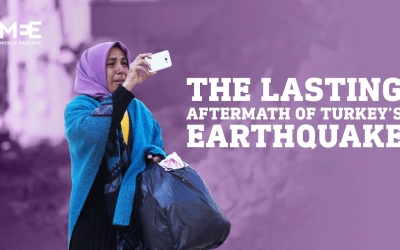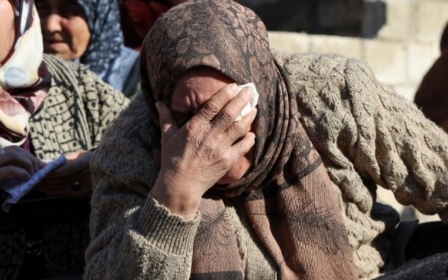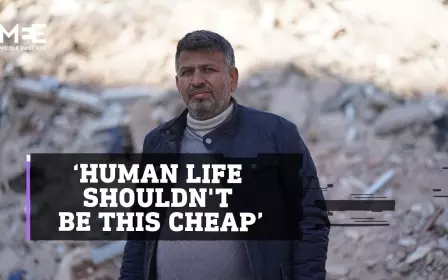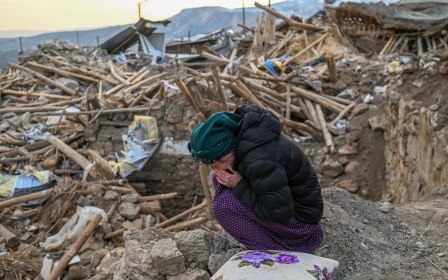Turkey earthquake: I saw so much suffering and loss, and so much need
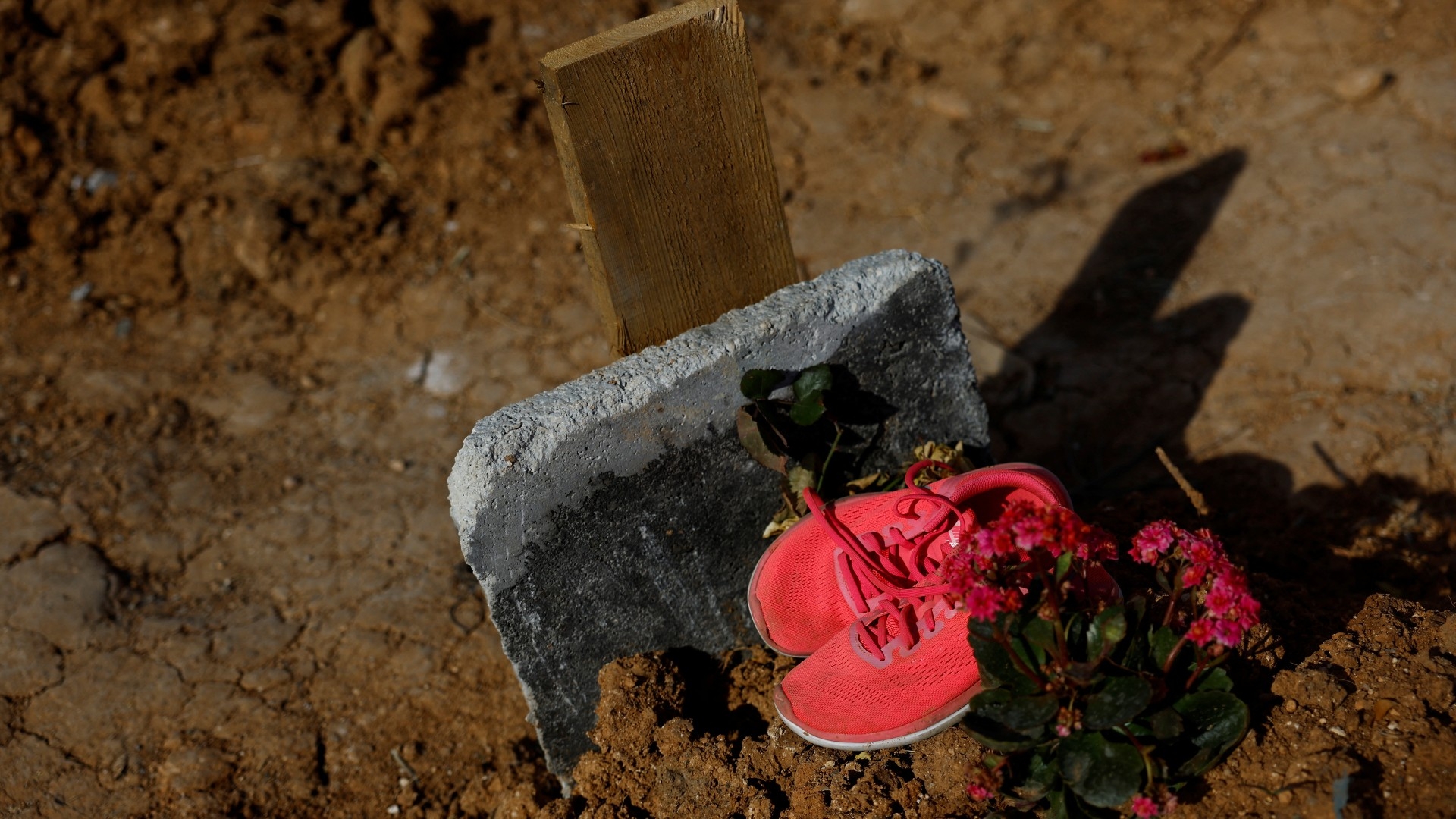
It’s the constancy of death that eventually wears you down: the off-hand way in which it slips into conversations by almost everyone you meet, not as a mark of unfeeling indifference, but rather the casual tones belying a tortured pain befitting no words.
It’s the knowledge that as you talk into a camera, poised and professional, trying to do your job, people are lying under the heap of rubble just metres behind you, some of them quite possibly still alive.
It’s seeing hearses carrying coffins of unidentified bodies, some of them child-size, pass by every few minutes, barely heeded by stunned survivors. Or bodies rushed away on plastic makeshift stretchers along rubble-ridden streets, or lying shrouded on the pavement, waiting to be laid down in graveyards for the unidentified.
The man laughed. But it was no ordinary laugh. It was the hollow hysteria of a man who had lost his mind
It wasn’t so much that the man at the petrol station told us his entire extended family, including young children, had died. It was more the way he said it: a resignation that was almost more unbearable than the fact itself.
Day after day we heard of death: wives, husbands, mothers, fathers, children. A man told me his father was somewhere in the mountain of rubble behind us, where, just a few days ago, an apartment block had stood. He had no idea if his father was alive or dead. I told him I was sorry. He replied that in the first few days, he'd been upset, but now he had accepted it.
New MEE newsletter: Jerusalem Dispatch
Sign up to get the latest insights and analysis on Israel-Palestine, alongside Turkey Unpacked and other MEE newsletters
Another man at a different site was helping with the rescue operation. He told me his mother was somewhere in the rubble. He asked us if we’d eaten and if we needed anything. I, in turn, asked if he had eaten. He laughed. But it was no ordinary laugh. It was the hollow hysteria of a man who had lost his mind. We later heard his mother had been pulled out dead.
Numbing effect
I do not claim to be an authority on any scientific theories surrounding collective trauma or the innate survival mechanisms that may or may not kick into force in these instances. But my friend, who accompanied me, observes that shared catastrophic experiences may result in a numbing effect on individuals, at least temporarily, as if the knowledge that others share your pain brings a sense of endurance.
Or perhaps the suffering is so deep that it transcends any emotional reaction. That said, survivors’ PTSD and all its symptoms were at the forefront of concerns of the authorities and humanitarian workers, and from the moment the earthquakes occurred.
Southern Turkey, modern and historic in equal measures; exuberant, dazzling, enthralling, is reduced to a dystopian wasteland in the space of a few minutes. Major cities decimated. Walking around the destruction plays tricks on your mind, as if it’s the end of days and only a few had lived to tell the tale.
These cities hold great memories for me: places I spent time in during my six years living in Turkey, got to know, basked in the sun’s rays that flooded them with warmth and light as I explored every corner and crevice, tasted the food, connected with the people. It makes this doomsday scenario all the more difficult to comprehend. I can’t detach myself from it. The memories run too deep.
Chaos and confusion
It is impossible to articulate the magnitude of destruction and devastation we witnessed: the suddenness of it all, the speed at which everything was unfolding, the rescue efforts, the funerals and burials, the clearance operations, the dizzying chaos and confusion all around us. So much suffering, so much loss, so much need.
Some things left a greater impression on my mind than others. In the first few days, every time rescue workers thought they’d heard a weak sound from deep within the rubble, they would demand silence from everyone nearby so that they could pick up any signs of life.
The moments that followed were agonising, the hope and anticipation of family members waiting for any news palpable. Often, it would end in disappointment. If anyone was pulled out, they would already be dead. After a week or so, the calls for silence became less and less frequent, until eventually there were no calls at all.
In the city of Adana, a building that was, until just a few days ago, home to hundreds of people, lay crumbled like a sandcastle flattened by the sea. In the first few days after the twin earthquakes, the area around the mountain of rubble was abuzz with activity: rescue workers desperately searching for the 60 or so people still missing, ambulances at the ready, residents drinking tea and warming their hands by open fires, waiting for any news.
When we returned a week later, all that remained was a large crater where the building had stood. Around us was an eery silence. Not a single person was in sight. All those people who lived in that building, their entire lives, their hopes, fears and dreams, bulldozed away in a matter of days. As if they had never existed.
It was worse at night. At one point we found ourselves driving through the dirt tracks around the remains of what were once the outskirts of the city of Antakya in Hatay province. In the blackness of the night, the collapsed buildings cast lonely shadows against our car lights. Who still lay beneath all the rubble, we wondered, shivering with fear.
Your mind starts playing tricks on you. You think you hear sounds when there are none. Shadows seem to sway in unnatural directions, like sentient beings dancing in the dark. When we found ourselves speeding into an underpass that had somehow remained intact, I screamed. For a moment I truly believed it was going to fall on us.
Guilt
After a while, it all became too exhausting: the constant fear of aftershocks, the below-freezing temperatures, the long daily drives from one ruined city to another. My mind was saturated. Everything became a blur: the tent cities, the uprooted buildings, the damage, the debris, the dust. The misery and hopelessness of it all.
The airport from which we departed was a three-hour drive from Adana. I felt the fears that had engulfed me for the past two weeks start to subside with every turn of the wheel. The tension in my neck started to ease. I could breathe again. The sense of relief was overwhelming - yet it was coupled with a feeling of guilt.
I think about those events every day: those who lost their lives in the most tragic of circumstances and those who now have to somehow find the will to carry on
But this in itself felt like an indulgence. For what right did I have to feel this way? It was, after all, not my tragedy. I could escape any time.
And therein, even one month on, lies an abiding sense of betrayal that comes with the feeling that I had "done my bit", that I had earned my right to leave these people to their misery and suffering.
As I reflect back on the horrors of the earthquake, I continue to ask myself: am I wrong to feel this way? Even now, I don’t have an answer.
I know I think about those events every day: those who lost their lives in the most tragic of circumstances and those who now have to somehow find the will to carry on.
I am inclined to believe that the sense of helplessness and hopelessness that comes with bearing witness to such horrors never really goes away. It stays buried somewhere deep inside you. Just like all those who now rest in unnamed graves.
The views expressed in this article belong to the author and do not necessarily reflect the editorial policy of Middle East Eye.
Middle East Eye delivers independent and unrivalled coverage and analysis of the Middle East, North Africa and beyond. To learn more about republishing this content and the associated fees, please fill out this form. More about MEE can be found here.



